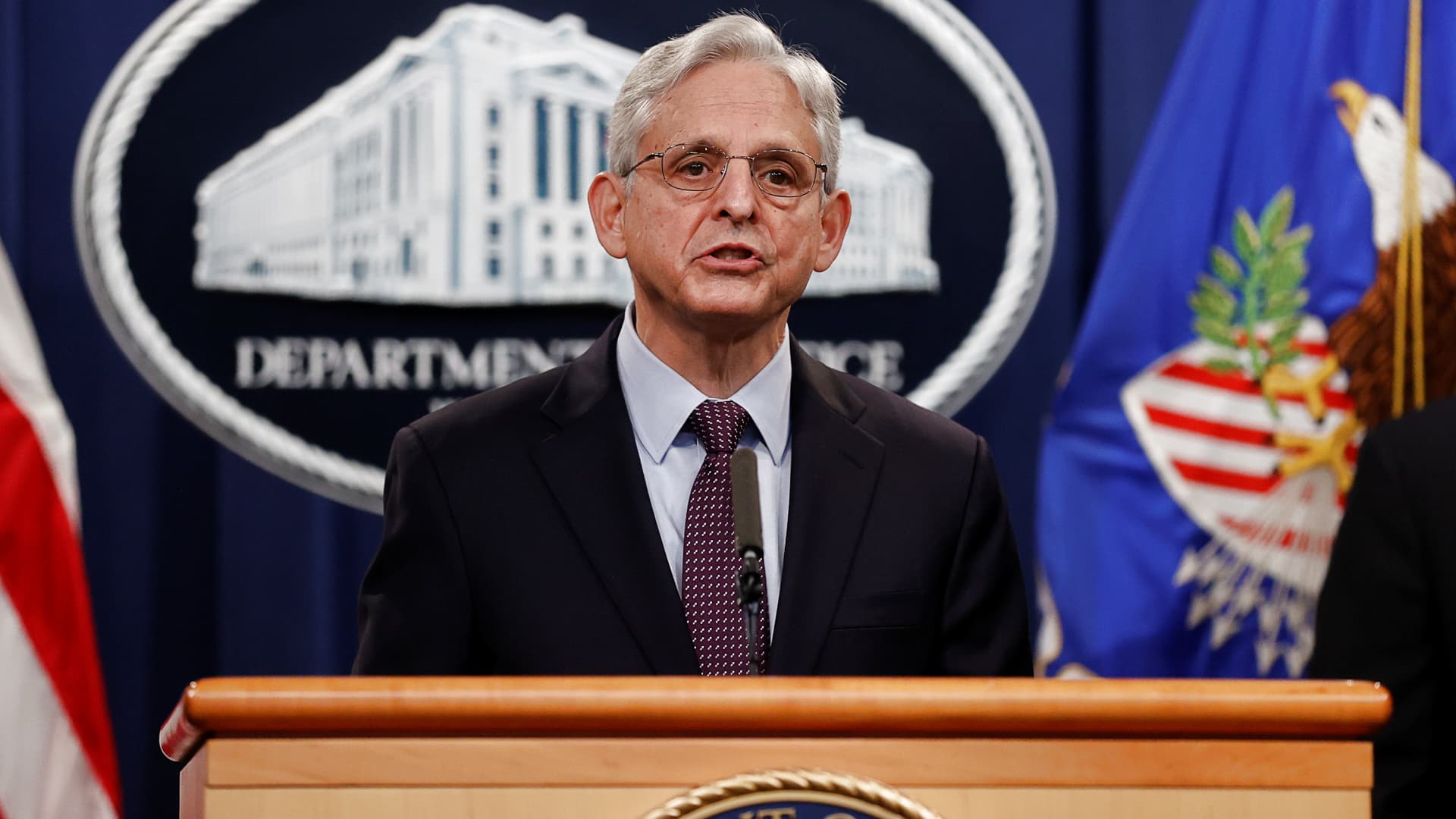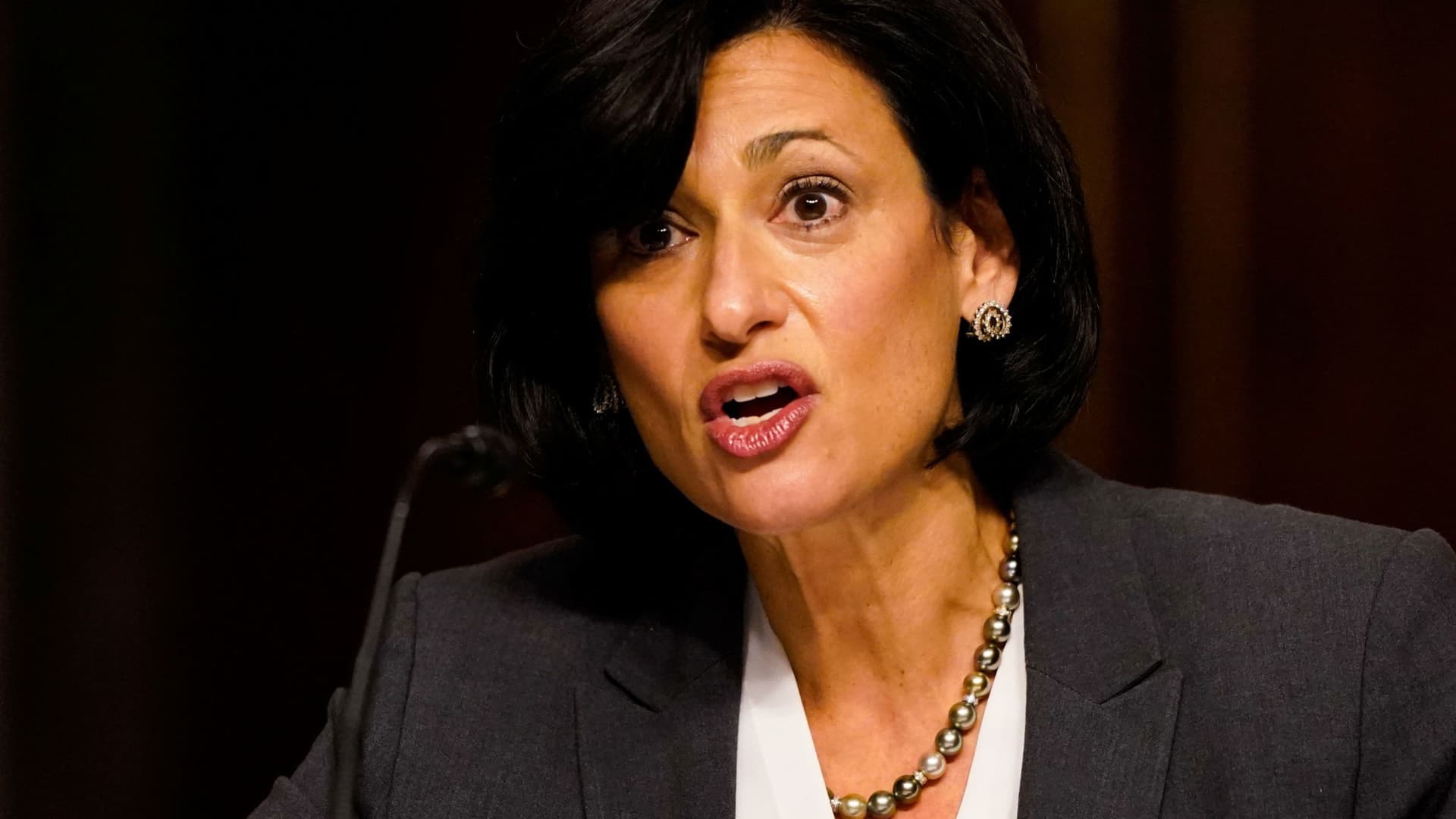Attorney General Garland warns against violent protests, says DOJ 'strongly disagrees' with high court ruling on Roe
Garland said DOJ "strongly disagrees" with the court's ruling and will "work tirelessly to protect and advance reproductive freedom."

U.S. Attorney General Merrick Garland announces charges against a suspect from Ukraine and a Russian national over a July ransomware attack on an American company, during a news conference at the Justice Department in Washington, November 8, 2021.
Jonathan Ernst | Reuters
U.S. Attorney General Merrick Garland tried to ward off violent protests to the Supreme Court's ruling Friday overturning its landmark abortion decision Roe v. Wade, asking protestors to remain peaceful.
"Advocates with different views on this issue have the right to, and will, voice their opinions," Garland said in a statement. "Peacefully expressing a view is protected by the First Amendment. But we must be clear that violence and threats of violence are not. The Justice Department will not tolerate such acts."
He added the Department of Justice "strongly disagrees" with the court's ruling and will "work tirelessly to protect and advance reproductive freedom."
"The Supreme Court has eliminated an established right that has been an essential component of women's liberty for half a century — a right that has safeguarded women's ability to participate fully and equally in society," Garland said. "And in renouncing this fundamental right, which it had repeatedly recognized and reaffirmed, the Court has upended the doctrine of stare decisis, a key pillar of the rule of law."
Garland added that Friday's decision "deals a devastating blow to reproductive freedom in the United States."
He noted that its impact would disproportionately affect people of color and those with the least financial means.
The Justice Department will continue to protect the right to an abortion in states where access was still legal, he said. While traveling for health care may not always be possible, "women who reside in states that have banned access to comprehensive reproductive care must remain free to seek that care in states where it is legal," he said.
He added that people should remain "free to inform and counsel each other about the reproductive care that is available in other states" under First Amendment principles.
The DOJ will also work with other agencies like the Food and Drug Administration "that seek to use their lawful authorities to protect and preserve access to reproductive care," he said. Garland noted the FDA has approved the use of the drug mifespristone, which is employed to induce abortion safely at home, and said states cannot ban the drug "based on disagreement with the FDA's expert judgment about its safety and efficacy."
"The Justice Department will use every tool at our disposal to protect reproductive freedom," Garland said. "And we will not waver from this Department's founding responsibility to protect the civil rights of all Americans."

 FrankLin
FrankLin 































.jpg&h=630&w=1200&q=100&v=f776164e2b&c=1)
